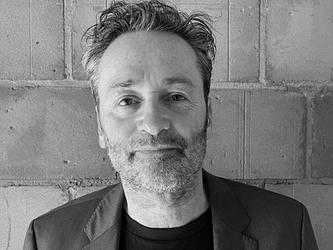Professor Claire Langhamer in seven
1. What can history teach us about consumer behaviour here and now?
Fundamentally, an understanding of history allows us to place current behaviour in context. It reminds us that behaviour is subject to long-term shifts and to quite dramatic short-term changes. Thinking about the past helps us to better understand the present and, possibly, build towards a better future.
2. Much of your work focuses on the history of feeling, but it is often difficult for researchers to capture this accurately. What is the biggest challenge of researching emotion?
One of the biggest challenges is understanding what it is we are actually researching when we study feeling. Feeling states are not always readily, or easily, articulated and, as a result, they are not always captured within historical archives. Feeling itself is also contingent on historical context. The meanings and implications of feelings – such as love, anger or happiness – in the past could be quite different from their significance today. The challenge is always to understand feelings in situ and on their own terms.
3. Should market researchers spend more time looking back?
Mapping trends over time helps us all. The simple recognition that how things are today is not how they were in the past helps us understand that the future may be different too. It’s an obvious point, but one that still needs to be made. That said, I’m not sure that it is necessarily the job of market researchers to do the work of looking back – that’s what historians are for!
4. Will today’s data-collection techniques help or hinder future historians in understanding society?
There are certainly challenges – particularly around the archiving and retrieval of digital material – but I have absolute confidence that historians of the future will work productively with whatever traces of the past are available to them. Some of the key types of market research – surveys, interviews, focus groups – generate the kind of rich and textured autobiographical material that social and cultural historians really value as a way of getting at lived experience. And, of course, archived market research will help future historians to understand how everyday practices, habits and tastes evolved over time.
5. Would you like to see more focus on emotion in current research methods?
There has been something of an ‘emotional turn’ within historical research in recent years. In part, this reflects the way the discipline has developed, but it also mirrors changes within society more broadly. Feeling is much more visible – and more widely discussed – within political, cultural and even economic life than it was even 50 years ago. In many of today’s workplaces, for example, emotional labour and emotional intelligence have distinct value. Given that emotion animates the behaviour of everyone – including, of course, researchers – it would be surprising if market researchers were not also interested in emotion.
6. What are the limitations of archive data?
There are always limitations because all data is partial, but historians are really good at thinking across different types of data to better understand the past. They are also incredibly adept at reading data against the grain once they have established why data was produced and for what purpose. Once we know that, we can think creatively about how we re-use it. Of course, it can sometimes be frustrating when whole groups of people are missing from the archive because their experiences were not deemed interesting enough to record.
7. What is your favourite resource?
The Mass Observation Archive, of which I am a trustee. For a historian of 20th century everyday life in Britain, Mass Observation offers unparalleled riches. I never tire of exploring the collections it holds and it always surprises me.
Professor Claire Langhamer is director of the Institute of Historical Research. Langhamer is a social and cultural historian of modern Britain who specialises in the history of everyday life, especially the experiences of women and girls, and the history of feeling. She is a fellow of the Royal Historical Society and a trustee of the Mass Observation Archive.
This article was first published in the July 2023 issue of Impact.

We hope you enjoyed this article.
Research Live is published by MRS.
The Market Research Society (MRS) exists to promote and protect the research sector, showcasing how research delivers impact for businesses and government.
Members of MRS enjoy many benefits including tailoured policy guidance, discounts on training and conferences, and access to member-only content.
For example, there's an archive of winning case studies from over a decade of MRS Awards.
Find out more about the benefits of joining MRS here.












0 Comments